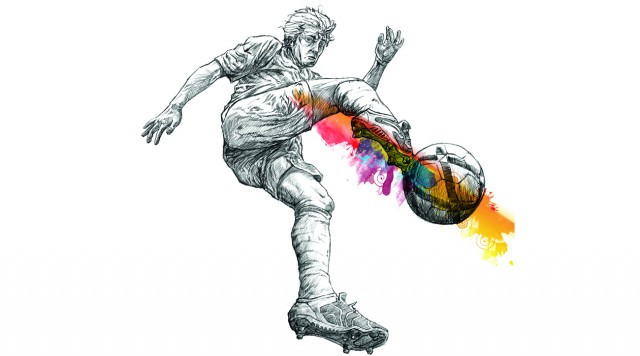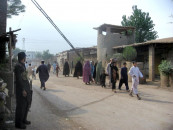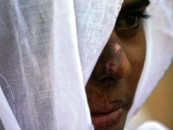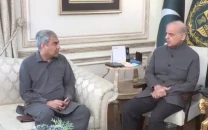The cleat from the chaff
We discovered in the first week of the World Cup that Brazil are co-favorites. That Spain bottled it.

The cleat from the chaff
There is something about the World Cup that renders it, if not entirely predictable, at least fairly consistent. There have been eighteen World Cups but, between them, they have thrown up only seven different winners – Uruguay, Italy, (West) Germany, Brazil, England, Argentina, and France. Since 1970, only six teams have even contested the final. The World Cup, it appears, is the sporting equivalent of a gated community, the ultimate Marxist nightmare: the few dominating the many, not even leaving scraps for the others – including so-called Big Teams like Spain and the Netherlands – to contest.
This time is supposed to be (slightly) different. Spain, always considered a safe bet to underachieve in big tournaments, are blessed with a breathtaking array of talent. They could, in effect, field two separate teams and have both be real contenders. Their scarcely believable record in the run-up to the tournament indexed a superior footballing squad that controls the game, passes, and moves off the ball better than any other side in the world.
Most teams’ cutting edge is provided by their front men, but in Spain’s case, it’s their central midfield that constitutes the real threat: Xavi and Andres Iniesta are two of the world’s five top players, and accentuate each other’s strengths. The core members of the Spanish team have been together for three or four years, a lifetime in international football, and understand and like each other. And they combine the best of both worlds when it comes to integrating the ethos of Spain’s two dominating club teams: through the six players they send to the Spanish starting XI, Barcelona export the pass-and-move playing style, while through their ex-manager Vicente del Bosque, now in charge of the national side, Real Madrid transmit their characteristic determination and confidence.
The shock loss to Switzerland in their opening game might actually do Spain good – del Bosque was palpably chafing under the favorites tag before the World Cup, and centre back Gerard Pique sounded almost relieved after the loss because expectations instantly dampened. If the real Spain show up, and pay attention to the valuable wakeup call they received, they can win the entire thing.
To do so, however, they will have to go through Brazil earlier than they would have liked. Spain’s loss to Switzerland, combined with the impressive form of Chile, means that Spain are likely to finish runners-up in their group, and play Brazil in their first knockout game, instead of in a dream final. And Brazil, more than any other side in this World Cup, are built to win. Joga Bonito has been sacrificed for Just Business. They are hard, athletic, strong, unrelenting.
Their system employs two men – Gilberto Silva and Felipe Melo – in front of a strong back four, tasked with breaking up opposition attacks. Unlike Spain, they don’t need possession to win games; all throughout qualifying, Brazil were content with only a handful of scoring chances, of which they would gratefully convert a significant percentage. Playing rapier-like counterattacking football, no team transitions from their own penalty area to their opposition’s quicker. And at the centre of it all is Kaka, the perfect player for Dunga’s system. They might not play traditional Brazilian football, but they can still be entertaining. Brutal efficiency is not mutually exclusive with being attractive, as any German car aficionado would tell you.
And then there’s Argentina, perhaps this tournament’s most compelling and fascinating story. For starters, there’s the psychodrama between Lionel Messi, this generation’s most gifted footballer, and Diego Maradona, the iconic and erratic Argentina coach.
Messi’s club for Barcelona in the last two seasons has been so sublime as to earn him comparisons with the greatest to have ever played the game: Pele, di Stefano, Cruyff, Beckenbauer, and, of course, Maradona. Ironically, of all the greats, Messi’s game most closely resembles Maradona: the other-worldly dribbling skills – of which Sid Lowe, of The Guardian once wrote “He doesn’t even seem to kick it most of the time: like a faithful dog, it just runs alongside him” – along with the low centre of gravity, the unerring shooting accuracy, and a feather-like touch, all bear an eerie sense of déjà-vu.
But Messi has not been able to replicate his club form for his country. He may have led Argentina to important successes at the Youth and Olympic levels, but at the senior level, he has been merely good. One of the reasons this is the case is simply tactical: Messi plays closer to the goal at Barcelona, whereas with Argentina he regularly drops deeper into midfield to collect the ball.
But, some claim, there is a more sinister element to Messi’s underperformance for Argentina. The conspiratorial-minded allege that Maradona is intentionally sabotaging Messi and not allowing him to flourish; that, wary of Messi challenging his place in history, Maradona is doing what he can to maintain it. As evidence, the conspirators point to the countless occasions on which Maradona has downplayed Messi’s importance to the Argentina side, instead deflecting attention to others. In his first press conference as Argentina coach, Maradona announced “My team is [Liverpool midfielder Javier] Mascherano and ten others.”
While no one can credibly claim to know exactly what Diego Maradona thinks, it’s unlikely to be quite as dramatic as all that. A simpler and more charitable interpretation is that Maradona is simply seeking to reduce the pressure that Messi feels. Messi’s on-field conduct may well be very similar to Maradona’s, but his demeanour and personality could not be more different. Where Maradona was brash and cocky, Messi is shy and deferential, and not one to welcome the spotlight and accompanying scrutiny. By placing others, and himself, at the centre of attention, Maradona might only be making Messi’s heavy burden more tolerable.
And it might not be the worst idea. Argentina, after a dreadful qualifying campaign which left them on the precipice of not even making it to South Africa, seem to be clicking. Heading into the World Cup, they were one of the more settled sides; belying his capricious nature, Maradona had decided on a team, a formation, and style of play. That form has carried over into the tournament itself, with Argentina the only side to have won its first two games at the time this article went to print. They may have a shaky defense – a back four without any full-backs – but they have a gluttonous choice when it comes to forwards and strikers, and in Mascherano, the reborn Juan Sebastian Veron (whose reestablishment in the Argentina team is quite a story itself), Angel Di Maria and Maxi Rodriguez, have enough in midfield to trouble most sides. Most of all, they have the irrepressible Messi, whose versatility as an individual is a significant asset for the collective of the Argentina side: depending on the situation of the game, Messi can be employed as a right-sided forward, an outright front man, a false number 9, a number 10, and even as an enganche, the deeper playmaker role so central to Argentine football history.
More than most, the two South American powerhouses and Spain are the best bets in this World Cup. Other contenders have weaknesses that may prove insurmountable. England have the same problems that they’ve had in recent history: not enough ball players in midfield and beyond, no real attacking option to partner Wayne Rooney, the Rubrik’s Cube that is the Gerrard-Lampard problem, and, to put it mildly, unreliable goalkeepers. The Netherlands have perhaps the worst back four of any of the top teams. France never had enough ability; it is easy (and justified) to blame their terrible coach Raymond Domenech for their troubles, but throughout qualifying France evinced precious little quality and almost each of their players is grossly overrated. Perish the thought of counting out perennial threats and the ultimate we-know-how-to-win teams Italy and Germany, but neither would inspire great fear amongst the cream. And while it would warm the heart to see an African team win the first World Cup on its soil, it does stretch the imagination to conceive of such a scenario, especially when considering that the best African team – Egypt, who have won the last three Africa Cups of Nations – aren’t even at the World Cup. They’re watching at home, just like the rest of us.
Published in The Express Tribune, June 27th, 2010.



















COMMENTS
Comments are moderated and generally will be posted if they are on-topic and not abusive.
For more information, please see our Comments FAQ